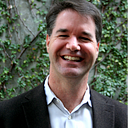Work is Going to Look Like College
This week, my college age daughter and two friends are staying with me. My daughter is working for Breakthrough Collaborative. One of her friends has two internships. The other is taking two classes. What’s amazing in watching digital natives is how well they have tuned their lives to the post-covid world. They more or less take every day as a vacation day from my point of view, but at the same time are insanely productive. They will go off to San Francisco for eight hours, but do intense work for two hours before and three hours after. When they get behind they just turn off everything and crank.
I’m pretty sure this is the future of work. Those of us used to a 9 to 5 job which took 100% of our attention are dinosaurs now. No doubt, if you are a CEO or top executive, you will have one and only one focus. But I strongly doubt that most employees will ever go back to that. Their lives are just too full and they can get everything done because they are far more efficient.
This made me realize that the kids didn’t actually adapt at all, the world adapted to them. Why hasn’t work always looked like college? The key features of college are an amazing social experience, combined with academics. The academics mainly follow the formula of a lecture or class, followed by a bunch of homework you need to do. The ratio between these two things might by four hours of homework for every hour of class. And homework is mostly asynchronous. Even if I’m doing a group project, I might meet with my group for thirty minutes and then do a few hours of work. So fundamentally, the ratio of asynchronous work to synchronous meetings is very high in college, about four to one.
To date, work has been the opposite. Work is mostly about meetings and communicating. Although most employees have been frustrated at the amount of time they are meeting and coordinating vs. building things, meetings won. I would be excited if I got two hours of work done during the day, and spent the rest of the day in meetings and communicating.
That’s changed in a big way with Covid. Because remote work means getting together is harder, live communication, the big time suck, got a lot more difficult to schedule and a lot more painful, because who loves an hour of Zoom with 20 people?
That has resulted in remote work being a lot more about asynchronous work and communication. That has caused employees to get much more clear on what they need from each other, and they have had to start using collaborative documents like notion for communicating. This interview by Ben Thompson of Stratechery, with Matt Mullenweg of Automattic turned the light bulb on for me. Remote work forces efficiency in communication and because that efficiency largely comes from autonomous workflow, what remains is a long trail of documents which are actually better than the non-existent notes you took at your last meeting. Listen to the part in the interview about daily standups. Automattic does them in text. And of course, that’s better. You don’t waste any time, people check them quickly, you have a long-lasting record, etc.
So post-covid, despite the fact that every CEO wishes people would just come back to the office, everyone has gotten used to their freedom and being really efficient, getting much closer to that college ratio of four hours doing for one hour coordinating. So maybe you have a couple of live events a day, but mostly you are cranking. And you may actually be off eating ice cream during the day and cranking at night. Who cares? Live your best life and get your work done.
It’s always easier to be lucky than good in life, and I will chalk up luck to my investments in the silent study space. I invested in StudyStream and Bindr, two companies with different takes on the silent study space for high school and college students. All of the sudden, the college mode of working just became everyone’s mode of working. Grabbing two hours and jumping on one of these sites to get it done with some accountability just works for people. And now these college grads who were groomed during covid just move right over and keep doing it at their jobs. Pretty clear that companies will pay for things that make their large remote teams productive and accountable.
I wish I could say that I would have predicted that people would get more autonomous after covid or that time slicing would become the dominant form of working. I’m just going to do my best to help these companies to make the post-covid work world so great for productive for employers, that everyone stops talking about offices and live meetings.
